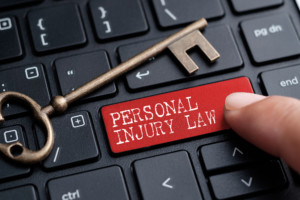 In any litigation case, expert and witness depositions are critical to the discovery phase. They have a high influence on the final outcome of wrongful death, workers’ compensation, and personal injury cases. It is essential that you work with a personal injury attorney to ensure that depositions are taken and presented in the most effective way to get favorable results of your case.
In any litigation case, expert and witness depositions are critical to the discovery phase. They have a high influence on the final outcome of wrongful death, workers’ compensation, and personal injury cases. It is essential that you work with a personal injury attorney to ensure that depositions are taken and presented in the most effective way to get favorable results of your case.
What is a Deposition?
In a deposition, a person, usually a witness or expert, is required to give a sworn testimony under oath during the discovery phase of a lawsuit. Typically, it is given in the presence of a court reporter so that a record of it is made to be used further in the case. The person is made to attend the deposition with the help of a subpoena. Just like a trial, an attorney asks questions related to the case to the deponent, but in the absence of a judge or jury. The deposition may also be admissible in court in certain situations.
How Depositions help an Attorney?
A deposition allows an opposing party to learn factual information pertaining to the case. The questions asked during the process are most important to an attorney as they serve multiple purposes. They allow the attorney:
What Happens in a Deposition of a Personal Injury Case?
Before a deposition, you or your attorney is required to give a notice to the deponent about holding a deposition. There are no rules and regulations regarding the location of a deposition, and it can take place almost anywhere suitable for both parties. In a majority of the cases, depositions are held at a court reporter’s office or the law firm office of the questioning attorney. A court reporter must be present during the entire deposition so that everything can be recorded. The costs of the court reporter are paid by the party holding the deposition.
During the deposition, one attorney is allowed to ask questions, but there can be another attorney for cross-examination. At the time of questioning, the other attorney has the right to object, but since there is no judge present to rule on the objections, they are noted by the court reporter and the deposition continues. The deponent is required to answer all questions. However, there are very limited circumstances where the deponent may choose not to answer the examining attorney.

If you have received a subpoena to be a deponent in a deposition, you should ask a personal injury attorney to walk you through the process and the general provisions to avoid any legal implications. Contact the Law Offices of Robert T. Edens, P.C. at (847) 395-2200 or online today to schedule your initial consultation.